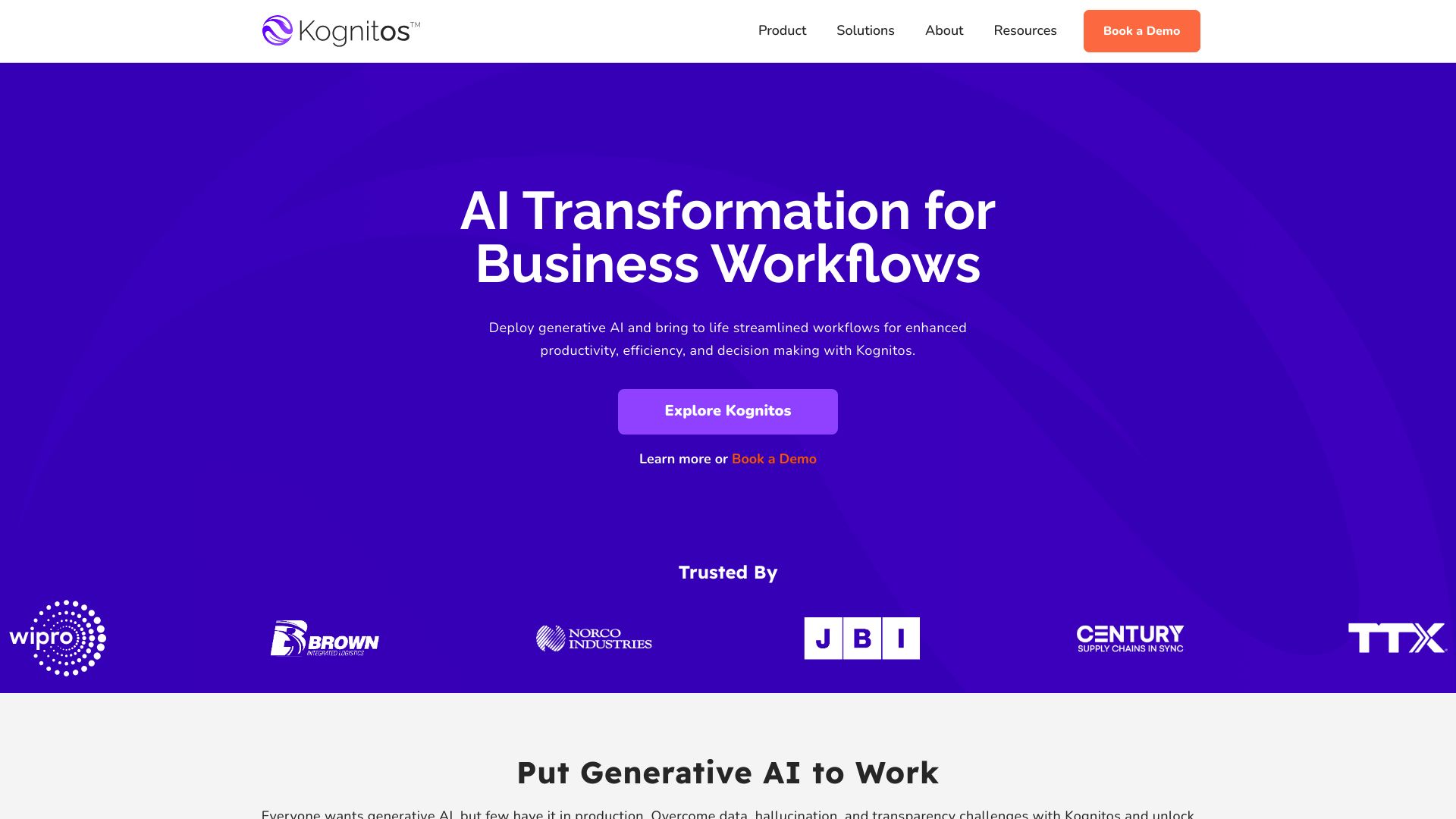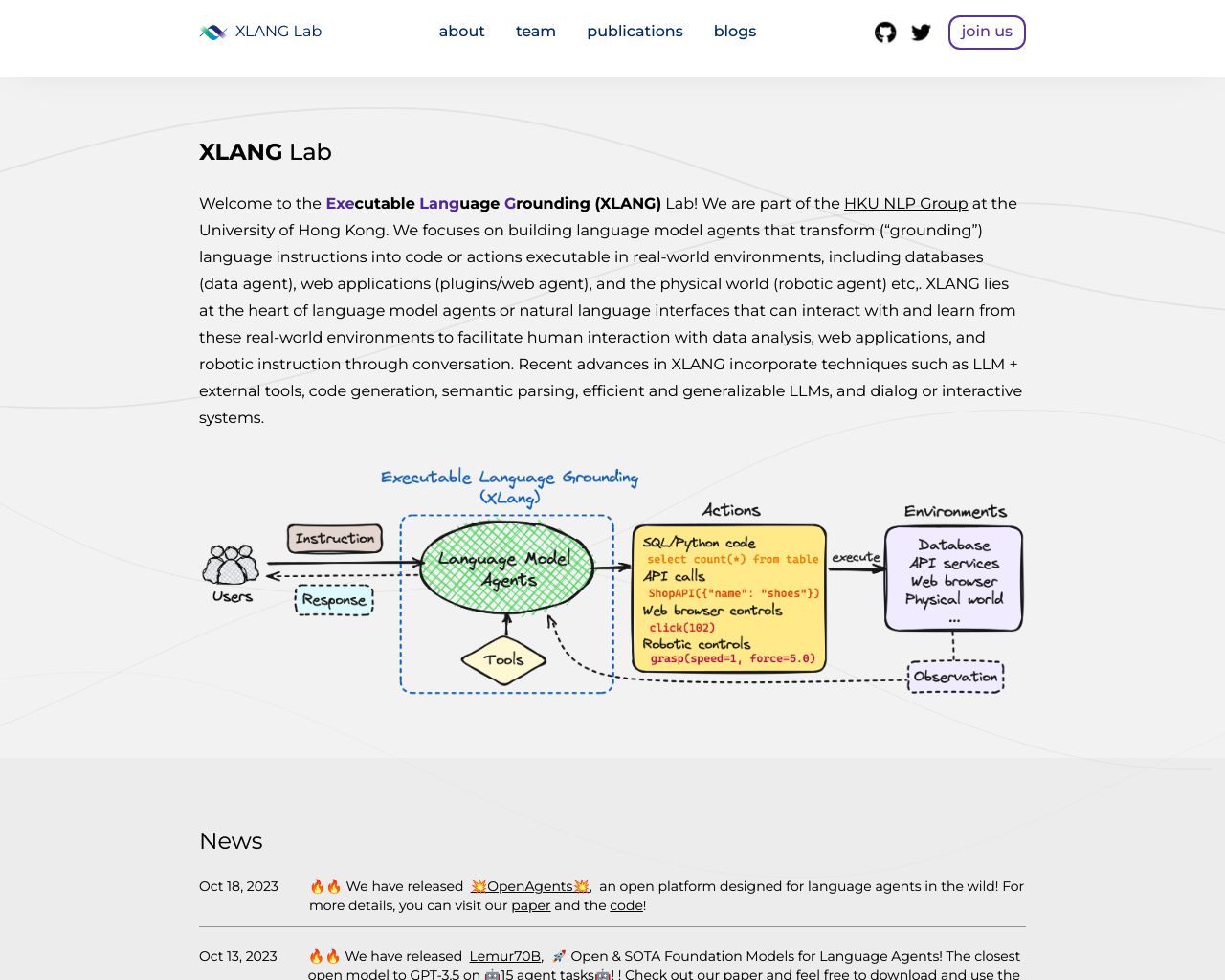Kognitos vs. OpenAgents: AI Automation Platforms Compared
AI platforms revolutionize business processes, empowering users to harness cutting-edge technology for automation and efficiency. This comparison delves into Kognitos vs. OpenAgents, and SmythOS, three distinct AI solutions reshaping the landscape. We’ll explore their unique approaches to natural language processing, specialized agents, and comprehensive AI development.
By examining core features, integration capabilities, and user-friendly interfaces, readers will gain insights to select the ideal AI platform for their specific needs. Whether you’re a developer seeking powerful APIs, a business leader focused on scalability, or a non-technical user looking for accessible AI tools, this analysis provides valuable guidance for navigating the evolving world of AI-driven solutions.
Kognitos Overview
Kognitos revolutionizes business automation through natural language processing and AI. The platform empowers users to create sophisticated automation workflows using plain English, eliminating the need for complex coding or traditional RPA bot management.
At its core, Kognitos leverages generative AI to interpret user instructions, execute tasks, and adapt to changing business processes. This approach democratizes automation, making it accessible to both technical and non-technical users across various industries.
Kognitos revolutionizes business automation through natural language processing and AI. The platform empowers users to create sophisticated automation workflows using plain English, eliminating the need for complex coding…


Kognitos excels in document processing, data manipulation, and system integration. The platform seamlessly connects with third-party applications, enabling users to automate complex workflows involving multiple tools and data sources. Its ability to handle exceptions through natural language interactions sets it apart, allowing for continuous improvement and adaptability.
Kognitos excels in document processing, data manipulation, and system integration. The platform seamlessly connects with third-party applications, enabling users to automate complex workflows…
While Kognitos offers powerful automation capabilities, it lacks some features found in more comprehensive AI agent builders. The platform focuses primarily on natural language automation rather than providing a visual builder or multimodal interactions. Additionally, Kognitos doesn’t explicitly support multi-agent collaboration or deployment as a site chat, which may limit its applicability in certain scenarios.
Despite these limitations, Kognitos stands out for its innovative approach to AI-driven automation. By combining the power of large language models with practical business applications, Kognitos enables organizations to streamline operations, reduce manual work, and adapt quickly to changing needs. Its focus on natural language interaction and self-learning capabilities positions it as a valuable tool for businesses seeking to harness AI for process improvement and efficiency gains.
OpenAgents Overview
OpenAgents revolutionizes AI integration with a versatile platform centered around three specialized agents. The Data Agent excels in complex data analysis, simplifying tasks from searching to visualization. Marketing professionals benefit from its ability to process large datasets and generate actionable insights efficiently.


The Plugins Agent stands out with over 200 integrated plugins, covering a wide range of daily activities from weather checks to online shopping. This extensive library adapts to diverse user needs, making it exceptionally user-friendly. The Web Agent employs a Chrome extension for autonomous web browsing, streamlining information access and resource discovery online.
OpenAgents revolutionizes AI integration with a versatile platform centered around three specialized agents. The Data Agent excels in complex data analysis, simplifying tasks from searching to visualization.
OpenAgents emphasizes accessibility with a user-friendly web interface and backend server, enabling seamless communication with agents. The platform supports deployment on localhost and allows integration of new agents and plugins, catering to both novice users and experienced developers. By bridging the gap between expert and non-expert users, OpenAgents delivers practical AI solutions for real-world challenges.
OpenAgents emphasizes accessibility with a user-friendly web interface… enabling seamless communication with agents. The platform supports deployment on localhost and allows integration of new agents and plugins.
While OpenAgents offers impressive capabilities, it lacks some features found in more comprehensive platforms. The absence of a visual builder may limit options for users who prefer drag-and-drop interfaces. Additionally, the platform does not explicitly mention support for multimodal interactions or collaboration between multiple AI agents, which could be limiting for certain complex applications.
Feature Comparison
Kognitos and OpenAgents offer distinct approaches to AI agent development, with notable differences in their core components and security features. Kognitos focuses on natural language automation, allowing users to create workflows using plain English. This approach simplifies complex processes for non-technical users but lacks a visual builder. OpenAgents, in contrast, provides specialized agents for different tasks but does not offer a drag-and-drop interface.
In terms of security, Kognitos implements robust measures like data encryption and OAuth integration, essential for enterprise-level deployments. OpenAgents’ security features are less explicitly defined, potentially limiting its appeal for organizations with strict data protection requirements. Both platforms support autonomous agents, but Kognitos excels in handling exceptions through natural language interactions, enhancing its adaptability. OpenAgents’ strength lies in its plugin ecosystem, offering over 200 integrations for diverse applications, a feature not prominently highlighted in Kognitos’ offering.
Feature Comparison Table
| Kognitos | OpenAgents | SmythOS | |
|---|---|---|---|
| CORE FEATURES | |||
| Hosted Agents (Dev, Production) | ✅ | ❌ | ✅ |
| Visual Builder | ❌ | ❌ | ✅ |
| No-Code Options | ✅ | ❌ | ✅ |
| Explainability & Transparency | ✅ | ❌ | ✅ |
| Debug Tools | ✅ | ❌ | ✅ |
| Audit Logs for Analytics | ✅ | ❌ | ✅ |
| Bulk Work | ✅ | ❌ | ✅ |
| Agent Work Scheduler | ✅ | ❌ | ✅ |
| Logs & Monitoring | ✅ | ❌ | ✅ |
| SECURITY | |||
| Constrained Alignment | ❌ | ✅ | ✅ |
| Data Encryption | ✅ | ❌ | ✅ |
| IP Control | ❌ | ❌ | ✅ |
| COMPONENTS | |||
| Huggingface AIs | ✅ | ❌ | ✅ |
| Zapier APIs | ❌ | ✅ | ✅ |
| Data Lakes | ❌ | ❌ | ✅ |
| DEPLOYMENT OPTIONS (EMBODIMENTS) | |||
| Deploy as Webhook | ❌ | ❌ | ✅ |
| Deploy as Site Chat | ❌ | ✅ | ✅ |
| Deploy as Scheduled Agent | ✅ | ❌ | ✅ |
| Deploy as GPT | ❌ | ✅ | ✅ |
| Scalability | ✅ | ❌ | ✅ |
| DATA LAKE SUPPORT | |||
| Hosted Vector Database | ❌ | ❌ | ✅ |
| Sitemap Crawler | ❌ | ❌ | ✅ |
| YouTube Transcript Crawler | ❌ | ❌ | ✅ |
| URL Crawler | ❌ | ✅ | ✅ |
| PDF Support | ✅ | ❌ | ✅ |
| Word File Support | ✅ | ❌ | ✅ |
| TXT File Support | ✅ | ❌ | ✅ |
Best Alternative to Kognitos and OpenAgents
SmythOS stands out as the superior alternative to Kognitos and OpenAgents for AI agent development. Our platform offers a comprehensive suite of features that address the limitations of both competitors while providing unparalleled ease of use and versatility. SmythOS’s drag-and-drop visual builder empowers users of all skill levels to create sophisticated AI agents without extensive coding knowledge. This intuitive interface, combined with our extensive library of pre-built components and templates, accelerates development time by 99% compared to traditional methods.
SmythOS’s drag-and-drop visual builder empowers users of all skill levels to create sophisticated AI agents without extensive coding knowledge.
We excel in providing a robust ecosystem for AI agent creation and deployment. Unlike Kognitos’ focus on natural language automation or OpenAgents’ specialized agents, SmythOS offers a flexible environment that supports a wide range of use cases. Our platform integrates seamlessly with various AI models, APIs, and data sources, allowing for the development of truly versatile and powerful agents. This adaptability ensures that SmythOS can meet the evolving needs of businesses across industries.
SmythOS offers a flexible environment that supports a wide range of use cases… allowing for the development of truly versatile and powerful agents.
Security and scalability set SmythOS apart from competitors. We implement enterprise-grade security measures, including data encryption and OAuth integration, addressing the concerns that limit OpenAgents’ appeal to organizations with strict data protection requirements. Our platform’s ability to scale effortlessly from small projects to large-scale enterprise deployments ensures that your AI solutions can grow alongside your business needs.
SmythOS enhances productivity through features like bulk work processing and scheduled agent tasks, capabilities not prominently featured in either Kognitos or OpenAgents. Our comprehensive logging and monitoring tools provide unparalleled visibility into agent activities, ensuring reliability and control at every step of the development and deployment process. By choosing SmythOS, you’re not just selecting an AI agent builder; you’re embracing a future-proof platform that will drive innovation and efficiency across your organization.
Conclusion
Kognitos and OpenAgents offer unique approaches to AI-driven automation, each with distinct strengths. Kognitos excels in natural language processing for business automation, while OpenAgents provides specialized agents for data analysis, web browsing, and plugin integration. Both platforms demonstrate the potential of AI in streamlining complex tasks and enhancing productivity.
However, SmythOS emerges as the superior choice, offering a comprehensive solution that combines the best of both worlds and more. Our platform’s intuitive drag-and-drop interface empowers users to create sophisticated AI workflows without extensive coding knowledge. With support for over 300,000 integrations and compatibility with leading AI models, SmythOS provides unparalleled flexibility and scalability.
Unlike Kognitos and OpenAgents, SmythOS offers a true “create once, deploy anywhere” approach. Our AI agents can be seamlessly integrated into various environments, from chatbots and APIs to scheduled tasks and site integrations. This versatility, coupled with our robust security features and support for multimodal interactions, positions SmythOS as the ideal choice for businesses seeking to harness the full potential of AI.
Experience the future of AI automation with SmythOS. Create a free account today and discover how our platform can transform your workflow, boost productivity, and drive innovation across your organization. With unlimited agent creation and a 30-day money-back guarantee, there’s no risk in exploring the possibilities. Unlock the power of AI and elevate your business to new heights with SmythOS.
Last updated:
Disclaimer: The information presented in this article is for general informational purposes only and is provided as is. While we strive to keep the content up-to-date and accurate, we make no representations or warranties of any kind, express or implied, about the completeness, accuracy, reliability, suitability, or availability of the information contained in this article.
Any reliance you place on such information is strictly at your own risk. We reserve the right to make additions, deletions, or modifications to the contents of this article at any time without prior notice.
In no event will we be liable for any loss or damage including without limitation, indirect or consequential loss or damage, or any loss or damage whatsoever arising from loss of data, profits, or any other loss not specified herein arising out of, or in connection with, the use of this article.
Despite our best efforts, this article may contain oversights, errors, or omissions. If you notice any inaccuracies or have concerns about the content, please report them through our content feedback form. Your input helps us maintain the quality and reliability of our information.
